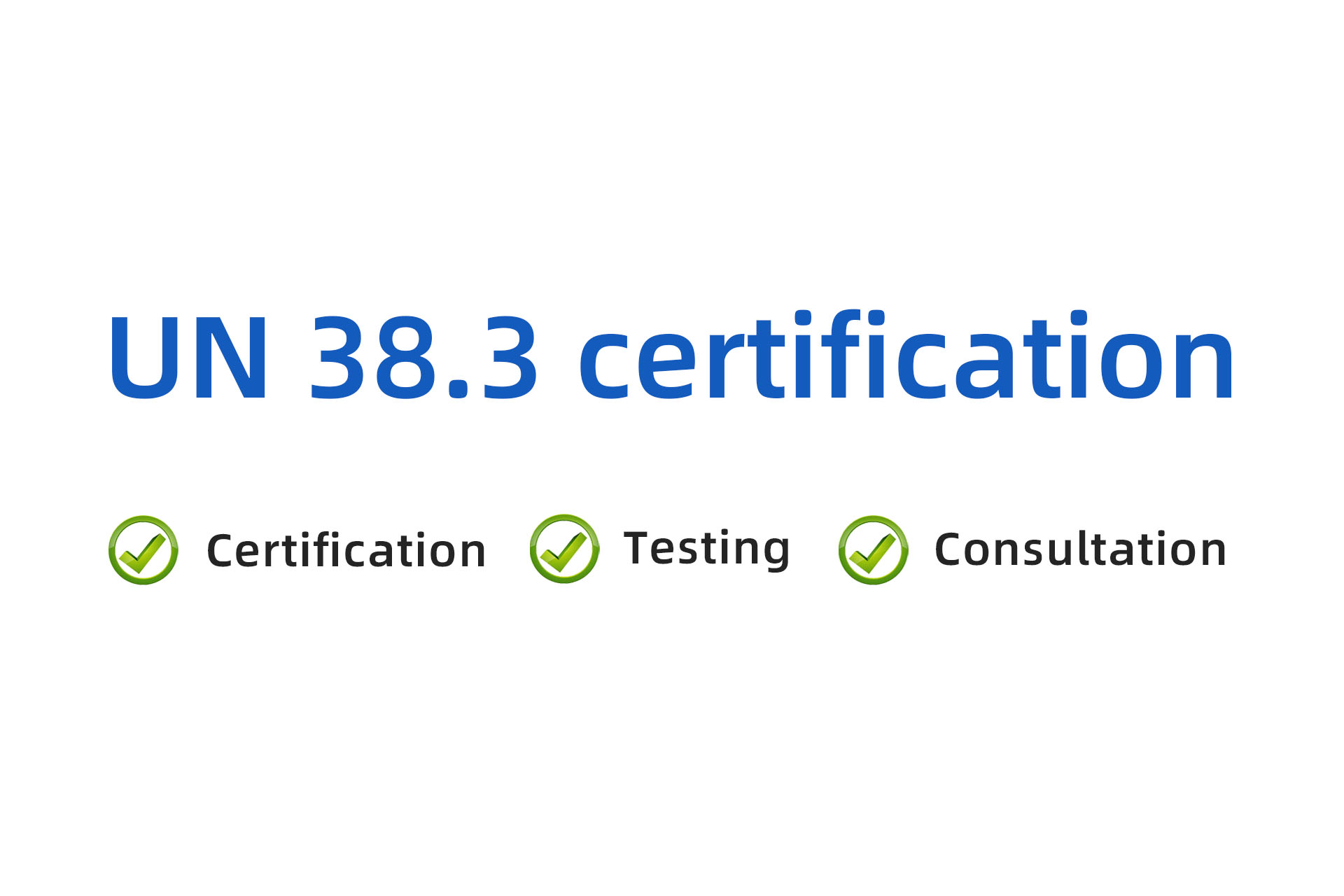
UN 38.3 certification is the abbreviation of Section 38.3 of the United Nations Manual of Tests and Criteria, which is one of the core safety standards in the field of lithium battery transportation worldwide. This standard was prepared by the United Nations Committee of Experts on the Transport of Dangerous Goods, aiming to ensure the safety of lithium batteries during transportation and prevent environmental problems.

Through years of deep cultivation in the field of testing and certification, Tonggui Testing has built a professional and skilled team with excellent service quality, and established a comprehensive advantage leading the industry. The company has gathered numerous experts in the testing industry, who not only have a precise grasp of various domestic and international testing standards, but also keep up with industry trends and quickly integrate the latest standards into testing services. In terms of hardware facilities, Tonggui Testing continues to increase investment, introduce internationally advanced testing equipment, create intelligent and standardized testing laboratories, and ensure the accuracy and reliability of testing data. In addition, Tonggui Testing always adheres to the service concept of customer first, building a one-stop service system. From project consultation and scheme formulation to testing implementation and report interpretation, the entire process accompanies customers, greatly saving their time and energy. With high-quality service and good reputation, it has won wide praise in the industry.
Introduction to UN 38.3 Certification Testing
Testing standards
UN 38.3 certification is developed by the United Nations Committee of Experts on the Transport of Dangerous Goods to ensure the safety of lithium batteries and equipment containing lithium batteries during air transport. should
Certification includes a series of rigorous testing items:
High altitude simulation test: Place lithium batteries or equipment in a simulated low-pressure environment at an altitude of 15000 meters for 6 hours to observe whether there will be any abnormal situations such as leakage, exhaust, disassembly, or fire, in order to evaluate the safety of the product in the low-pressure environment of air transportation.
Thermal testing: First, store the product in a high temperature environment of 72 ℃ for 12 hours, then transfer it to a low temperature environment of -40 ℃ for 12 hours, and finally return it to an environment of 20 ℃ for 12 hours. Through this cycle of testing, verify the performance stability of the product under different temperature conditions to ensure that safety issues will not be caused by temperature changes. Vibration test: Conduct vibration tests on the product for 90 minutes in three mutually perpendicular directions with an amplitude of 1.15mm and a frequency of 10-55Hz per minute, simulating the vibrations that the product may experience during transportation, and detecting whether there are safety hazards such as short circuits and shell ruptures in the vibration environment.
Impact test: The product is subjected to a peak acceleration of 150gn and an impact pulse of 6ms, with three impacts in three mutually perpendicular directions. Through this test, the safety of the product is evaluated in the event of accidental impact.
External short circuit test: Short circuit the lithium battery externally to a short-circuit current of not less than 50A for 5-6 hours, observe whether the product will encounter dangerous situations such as fire and explosion, and ensure the safety of the product in the event of a short circuit.
Overcharge test: Charge the rechargeable lithium battery with 1.2 times the maximum charging current and 1.2 times the maximum charging voltage for 24 hours to test the safety of the product under overcharging conditions.
Forced discharge test: Conduct forced discharge on lithium batteries to evaluate their safety under abnormal discharge conditions.
Applicable products
Lithium ion batteries: Lithium ion batteries used in various mobile phones, laptops, power banks, and other devices, as well as lithium ion battery packs sold separately, must pass UN 38.3 certification testing in order to be transported by air.
Lithium metal batteries: Lithium metal batteries commonly used in devices such as pacemakers and wireless sensors also require UN 38.3 certification testing before air transportation.
Equipment containing lithium batteries: In addition to the batteries themselves, equipment containing lithium batteries such as power tools, drones, balance vehicles, etc. also need to meet the requirements of UN 38.3 certification during air transportation.
Tonggui Testing provides customers with comprehensive and professional UN 38.3 certification testing services: a professional technical team develops personalized testing plans based on the characteristics, usage scenarios, and testing requirements of customer products; During the testing process, we strictly follow the UN 38.3 certification standard and use advanced testing equipment to monitor the testing process in real time, ensuring the accuracy and repeatability of the test data; After the testing is completed, provide customers with detailed and professional testing reports, and assist them in applying for certification, helping them successfully obtain UN 38.3 certification.
Why choose general testing
Professional team empowerment: The professional team of Tonggui Testing has rich experience in the UN 38.3 certification testing field, has a deep understanding of relevant standards and technologies, and can provide customers with comprehensive technical support to help them solve various problems encountered during the testing process.
Advanced equipment guarantee: The company is equipped with internationally leading testing equipment, which can not only simulate various complex testing scenarios to meet the testing needs of different products, but also improve testing efficiency, shorten testing cycles, and help customers quickly enter the market.
One stop service experience: The one-stop service model of Tonggui Testing allows customers to enjoy convenient and efficient services from consultation to certification completion without having to rush between multiple links.
Good reputation witness: Over the years, Tonggui Testing has established a good reputation in the industry with professional services and high-quality testing results, and is a reliable partner for customers to conduct UN 38.3 certification testing.